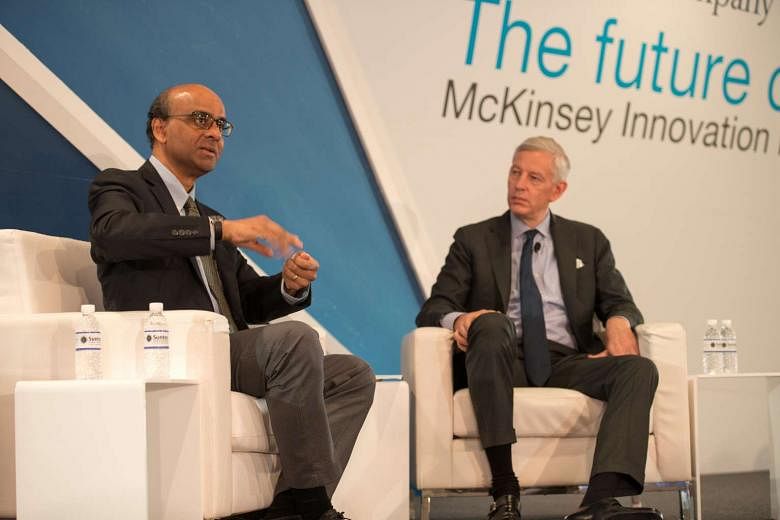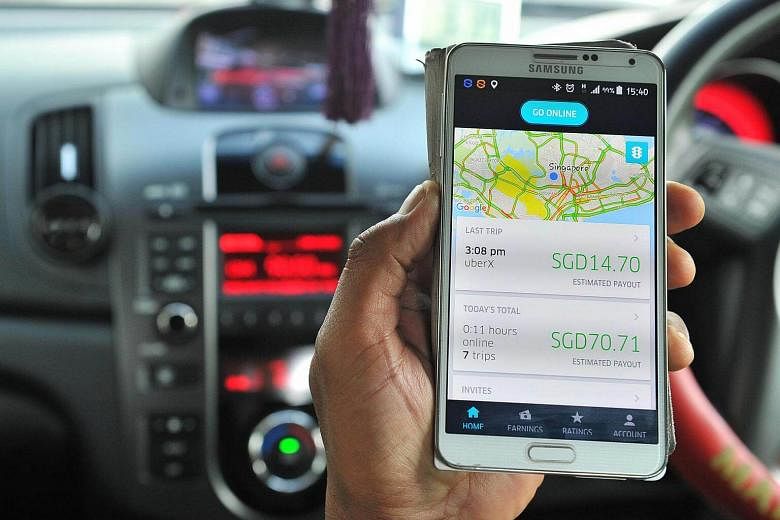The rise of tech firms like Uber and Deliveroo has created tens of thousands of jobs across the world, but Deputy Prime Minister Tharman Shanmugaratnam is concerned that they do not provide the kind of benefits that more traditional employees enjoy.
The army of part-time workers driving cars for hire and delivering your food in the so-called gig economy tend to be independent contract workers, so they miss out on perks like healthcare that others take for granted.
Mr Tharman said this is a trend that warrants closer inspection.
"I'm not yet a fan of the gig economy," he said during a dialogue at the McKinsey Innovation Forum at the Suntec convention centre yesterday. He was speaking with McKinsey & Company global managing partner Dominic Barton.
"Some of the people in what is described as the gig economy are those who've got no choice because they can't get a full-time job, they can't get a secure job. That's something which has to be tackled everywhere," he noted.
Furthermore, hiring contract workers "serves the interest of the company because they're really pushing risk onto the contract worker and I don't think that's a great social model", he added.
"We've got to avoid a continuing drift - risk being passed from companies to workers, who actually can't take much risk - the risk of instability in wages, and the risk of not being prepared for retirement because of a lack of social security contributions."
Mr Tharman's comments reflect some of the points raised in a Mc- Kinsey report published this month that said lifetime employment at one company is largely a relic of the past. But it also added that while the rise of the gig economy could create economic gains, it also raises questions surrounding benefits, income security and worker protections.
"Any proposal will have to tackle multiple angles, starting with who would pay for such benefits and how they would be earned and tracked for workers with multiple clients and employers," the report said.
Mr Tharman, who is also Coordinating Minister for Economic and Social Policies, said the Govern- ment's role, as it navigates the future of work, is to help speed up the transfer of skills and knowledge across companies big and small.
To do this, it has to avoid regulations that hamper economic dynamism. Then it has to coordinate the players in the economy "so as to thicken interactions within every cluster and speed up the rate of learning", he said. "Speeding up the rate of learning, cluster by cluster, is the new competitive game. The countries that speed up learning the most will win."
Workers, too, should think about how to augment their own abilities with technology, Mr Tharman added.
"The future jobs, the most rewarding jobs, are going to be those that involve thinking and making, thinking and designing, being on the production floor at the same time that you are leading strategy in an organisation.
"And that's happening in a whole range of sectors. So there's a lot more fluidity," he said.



